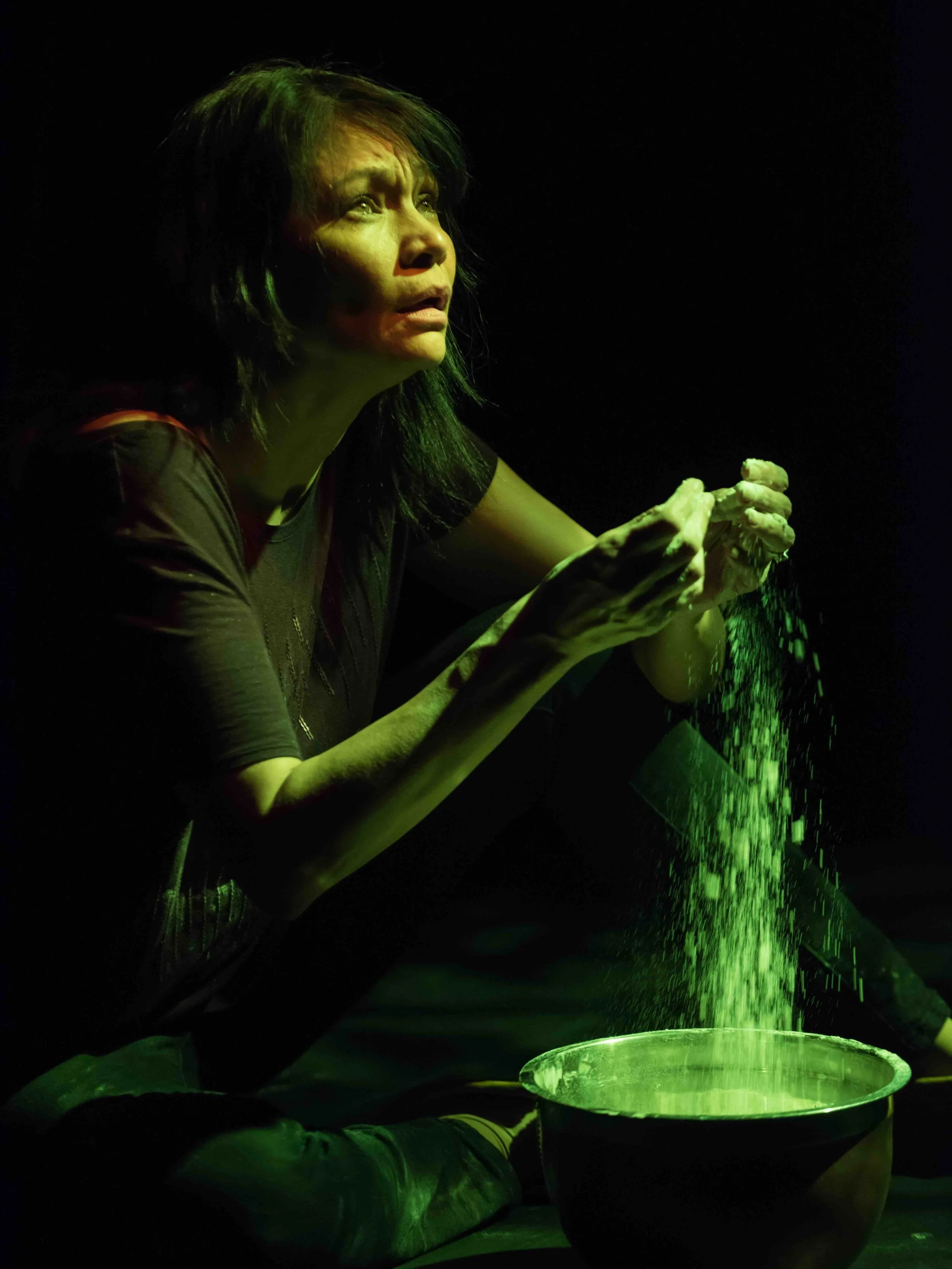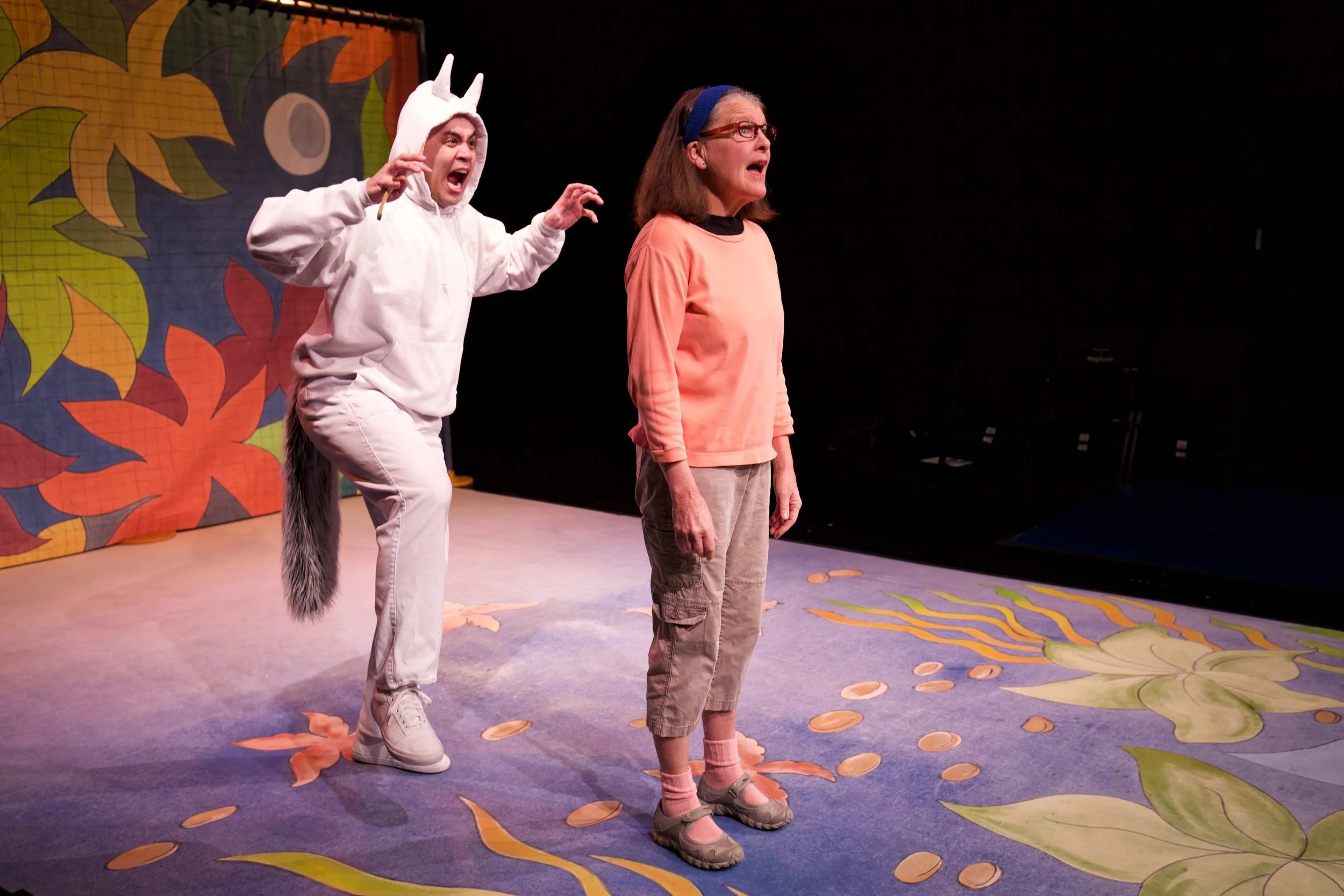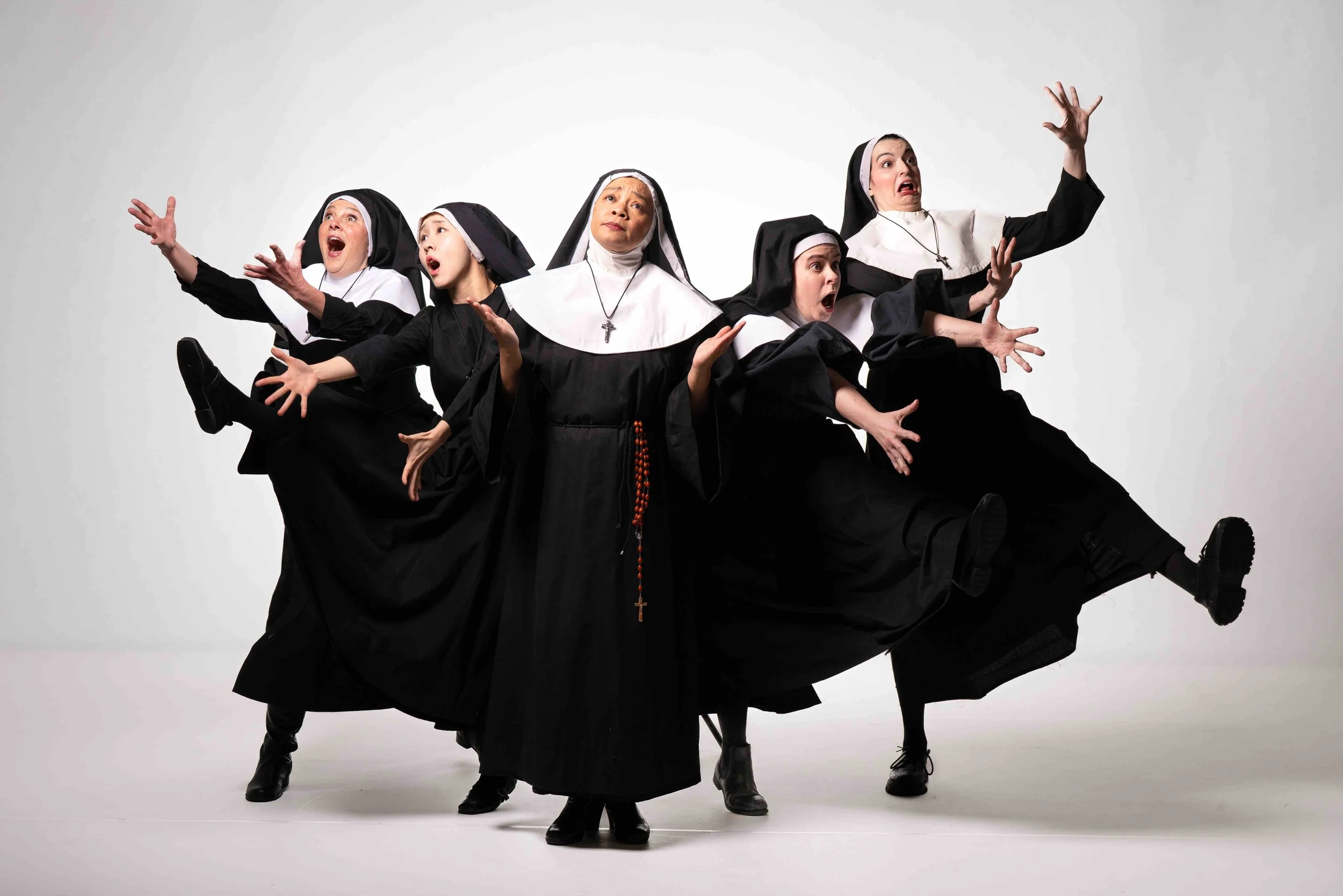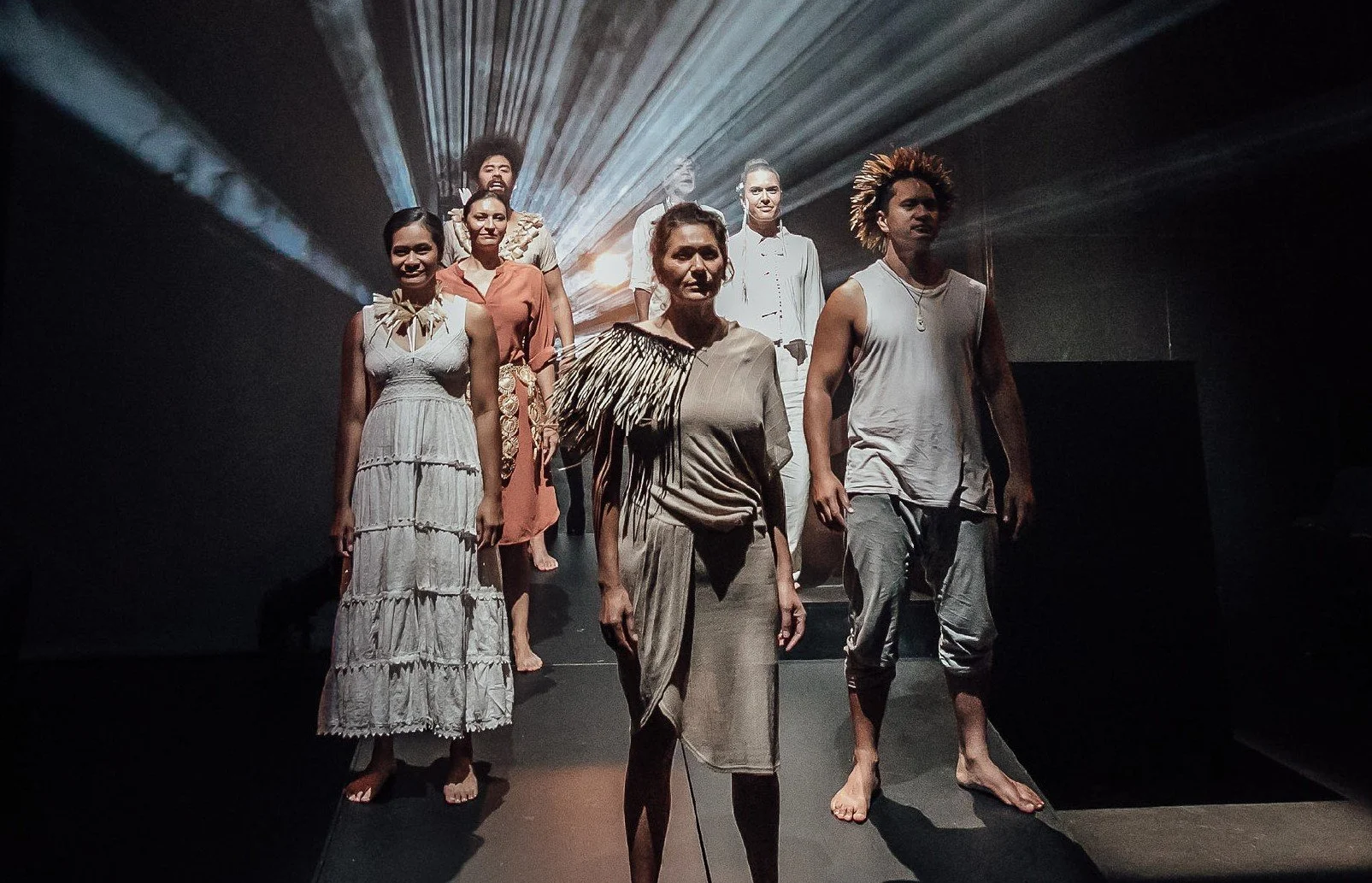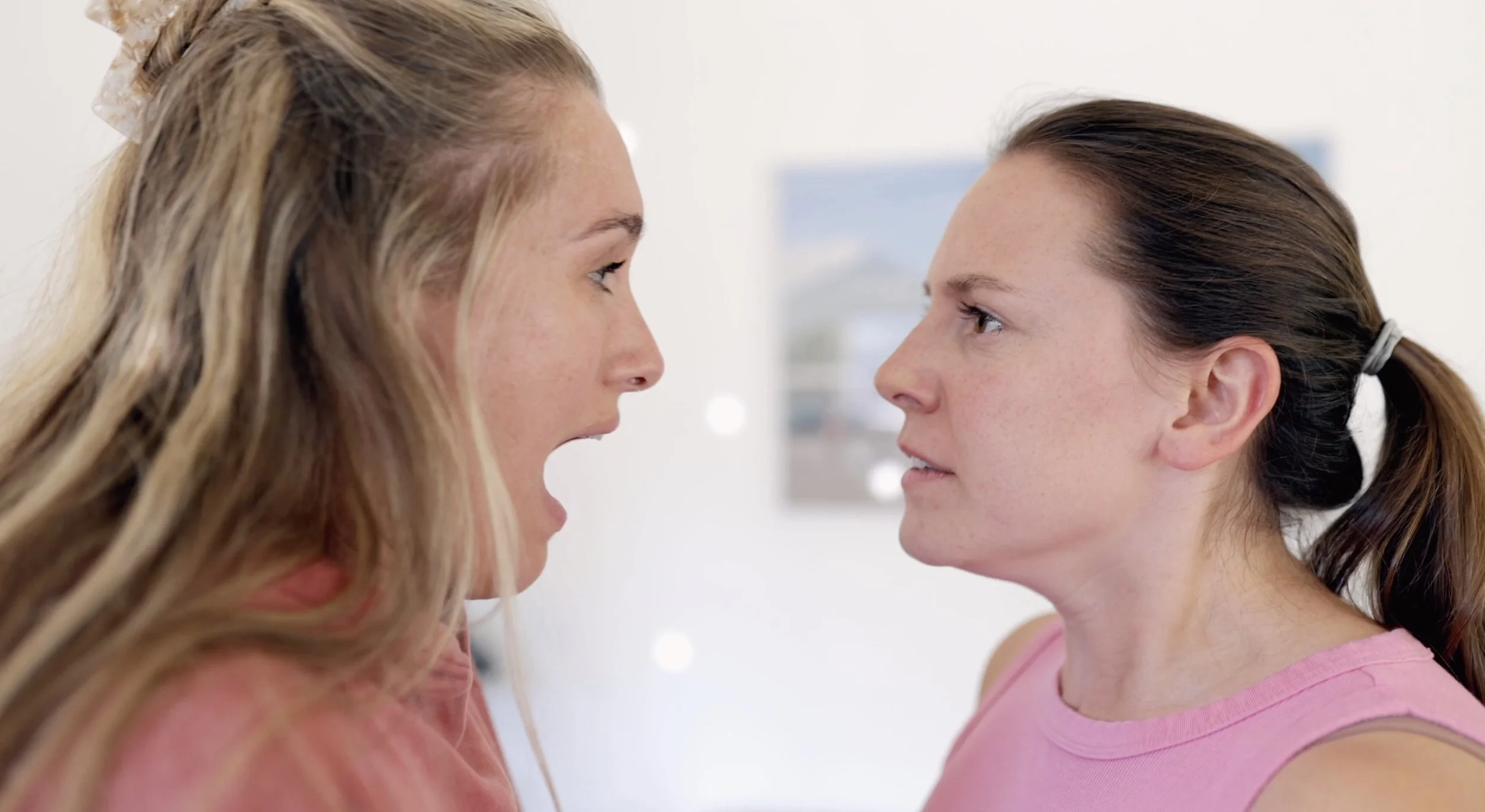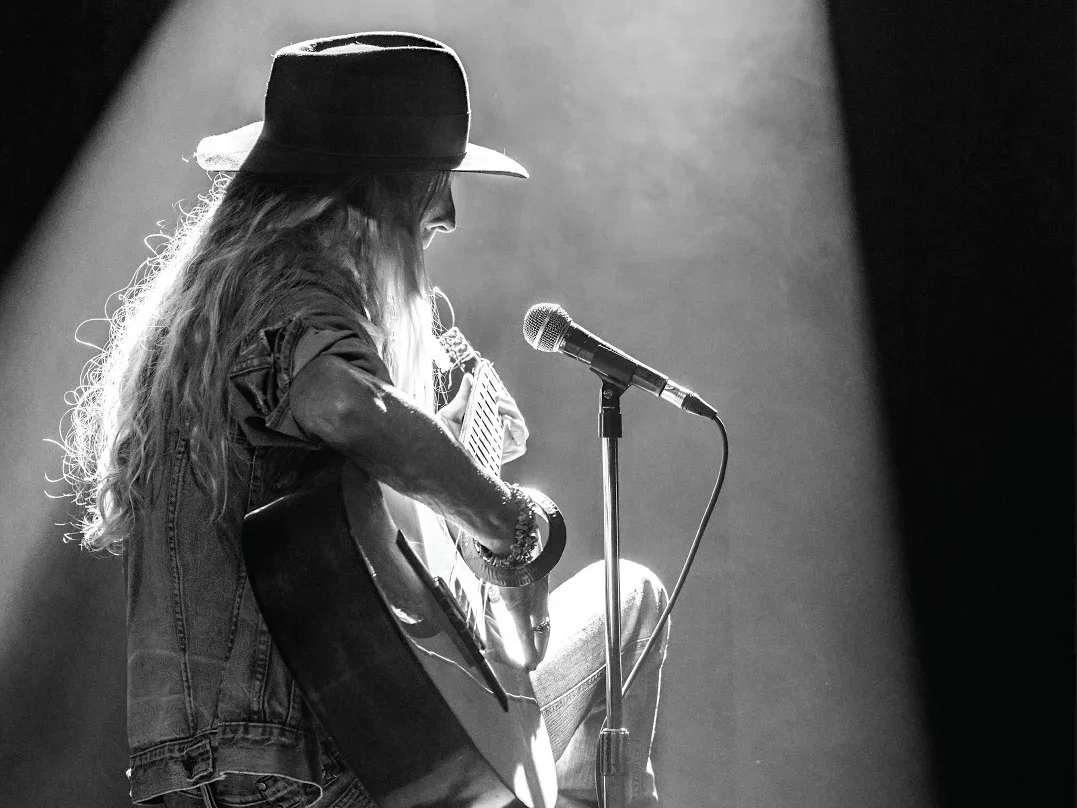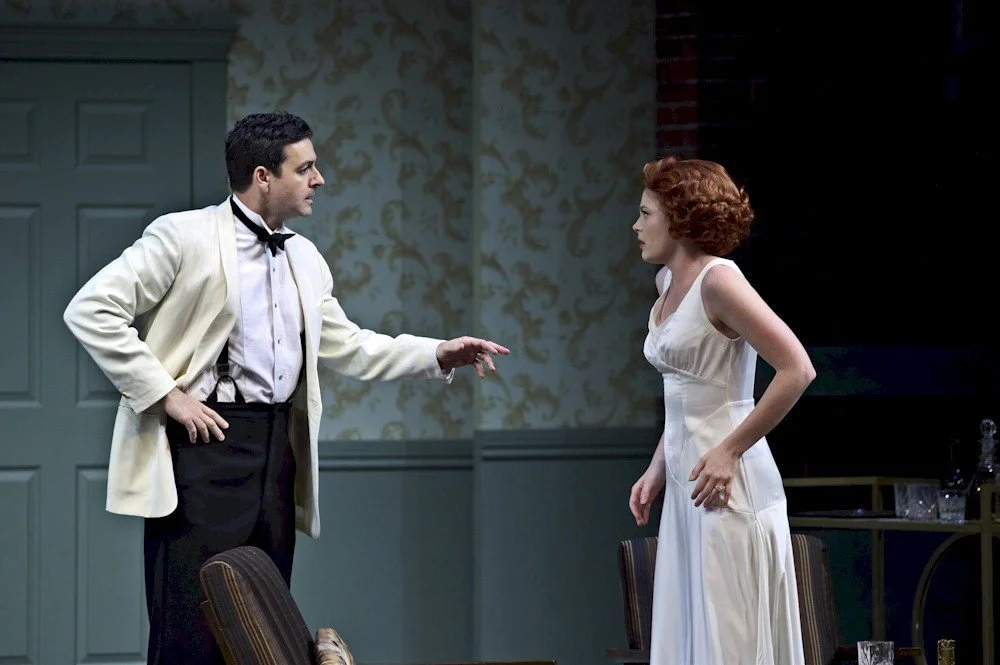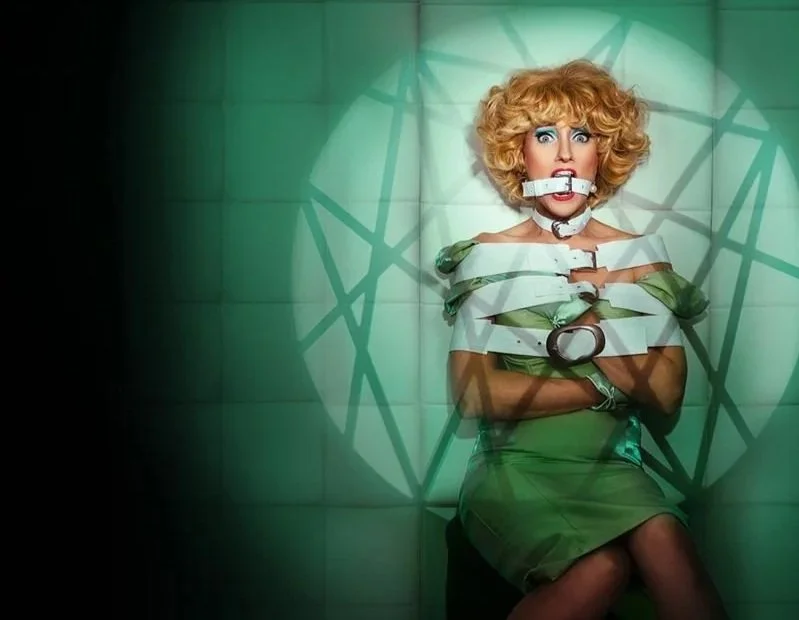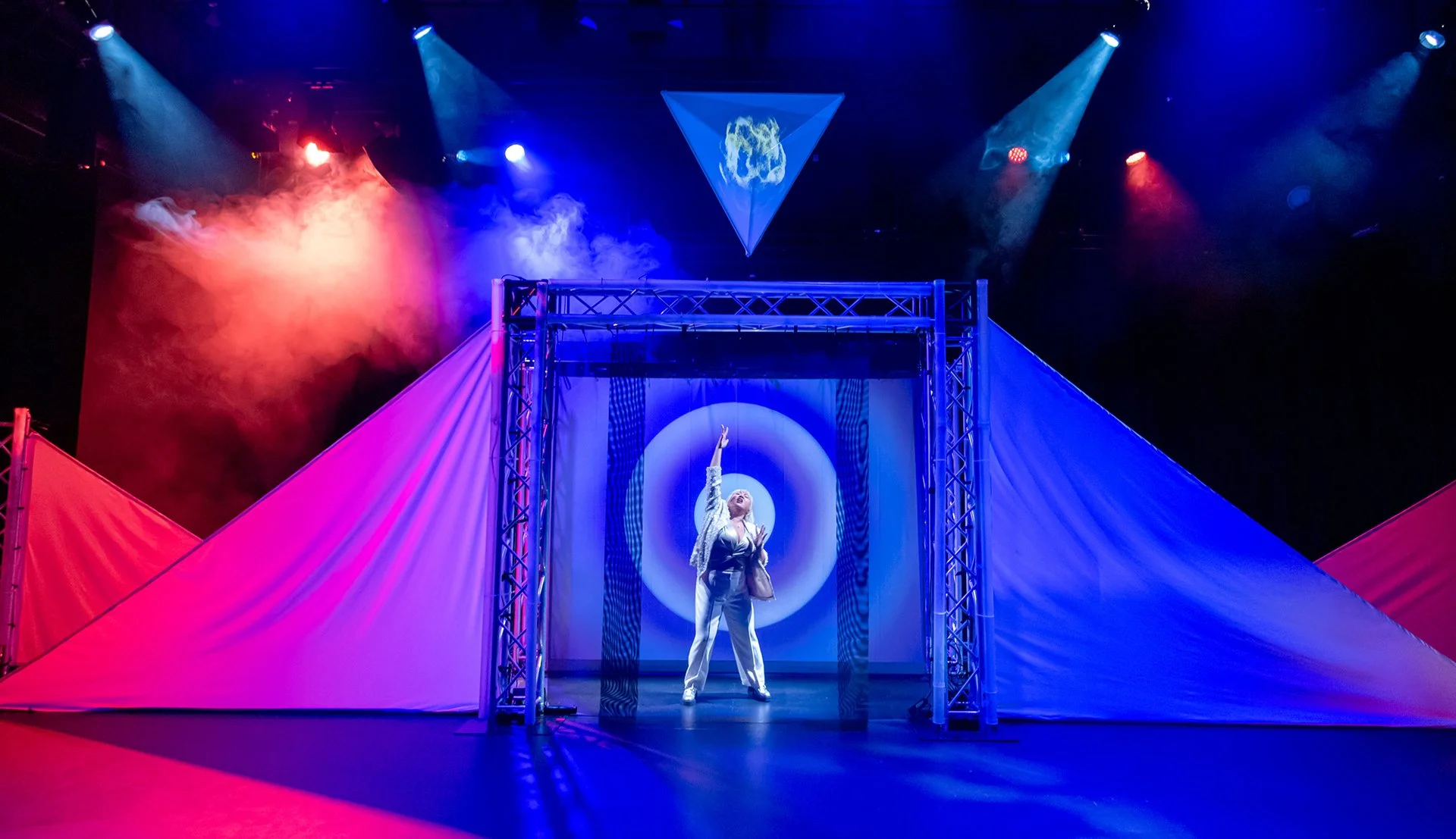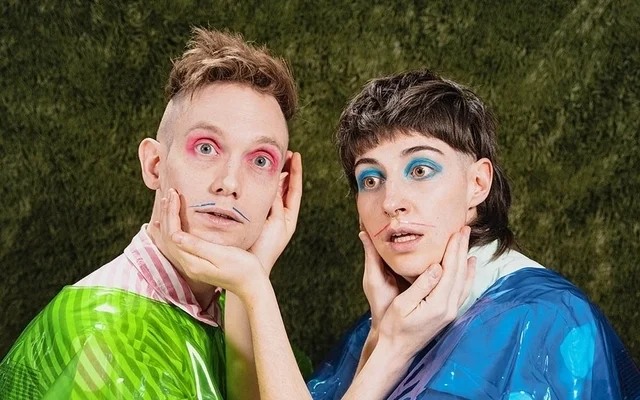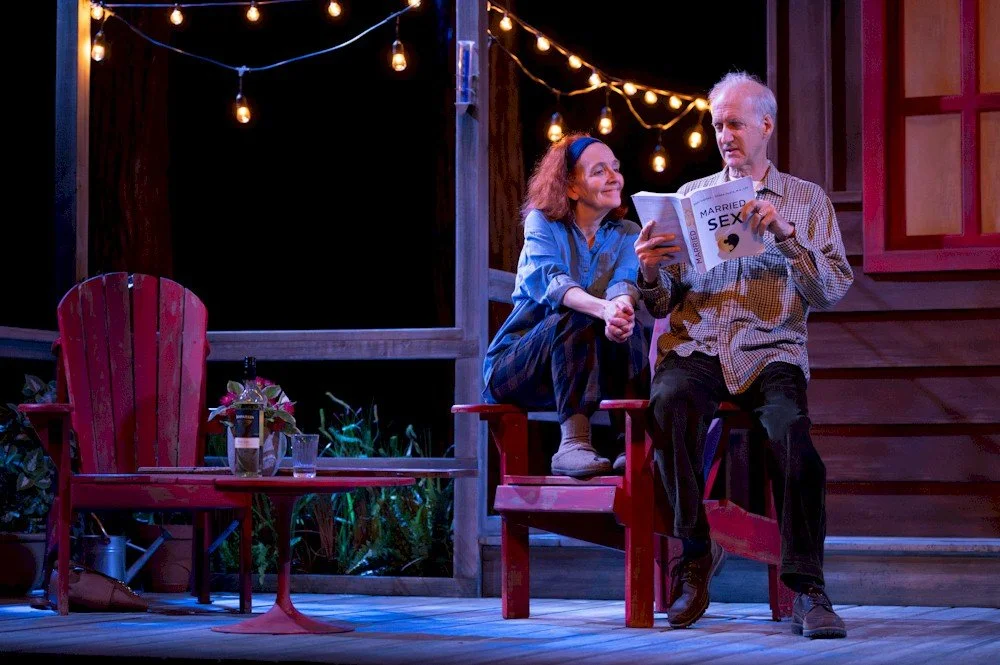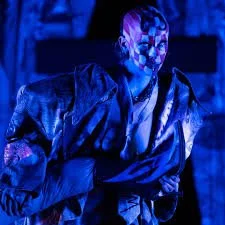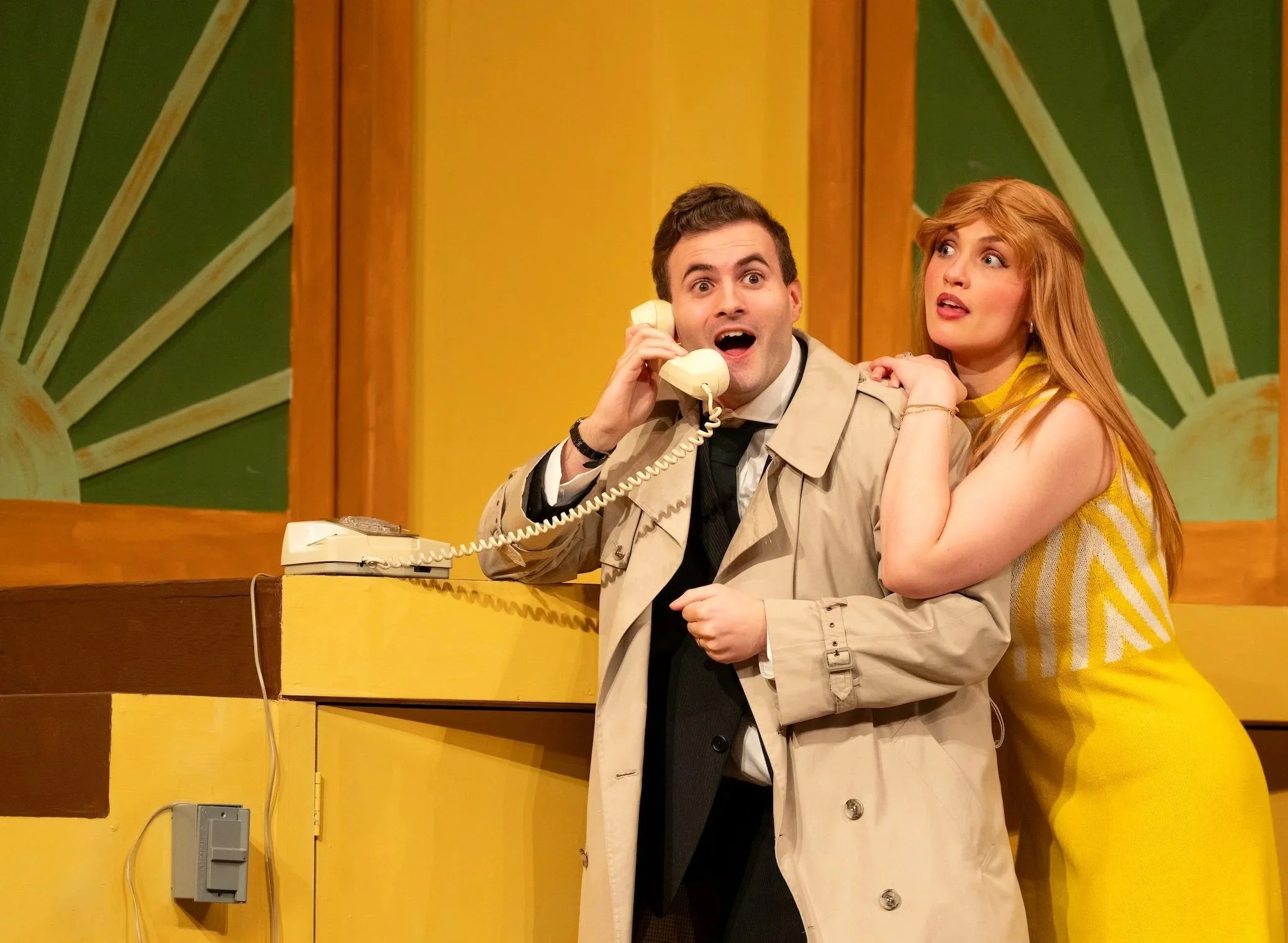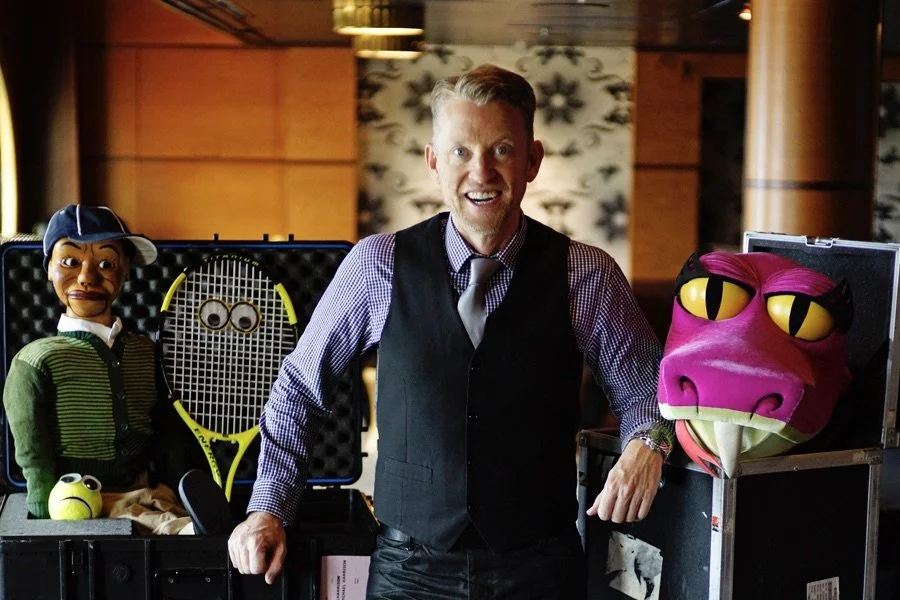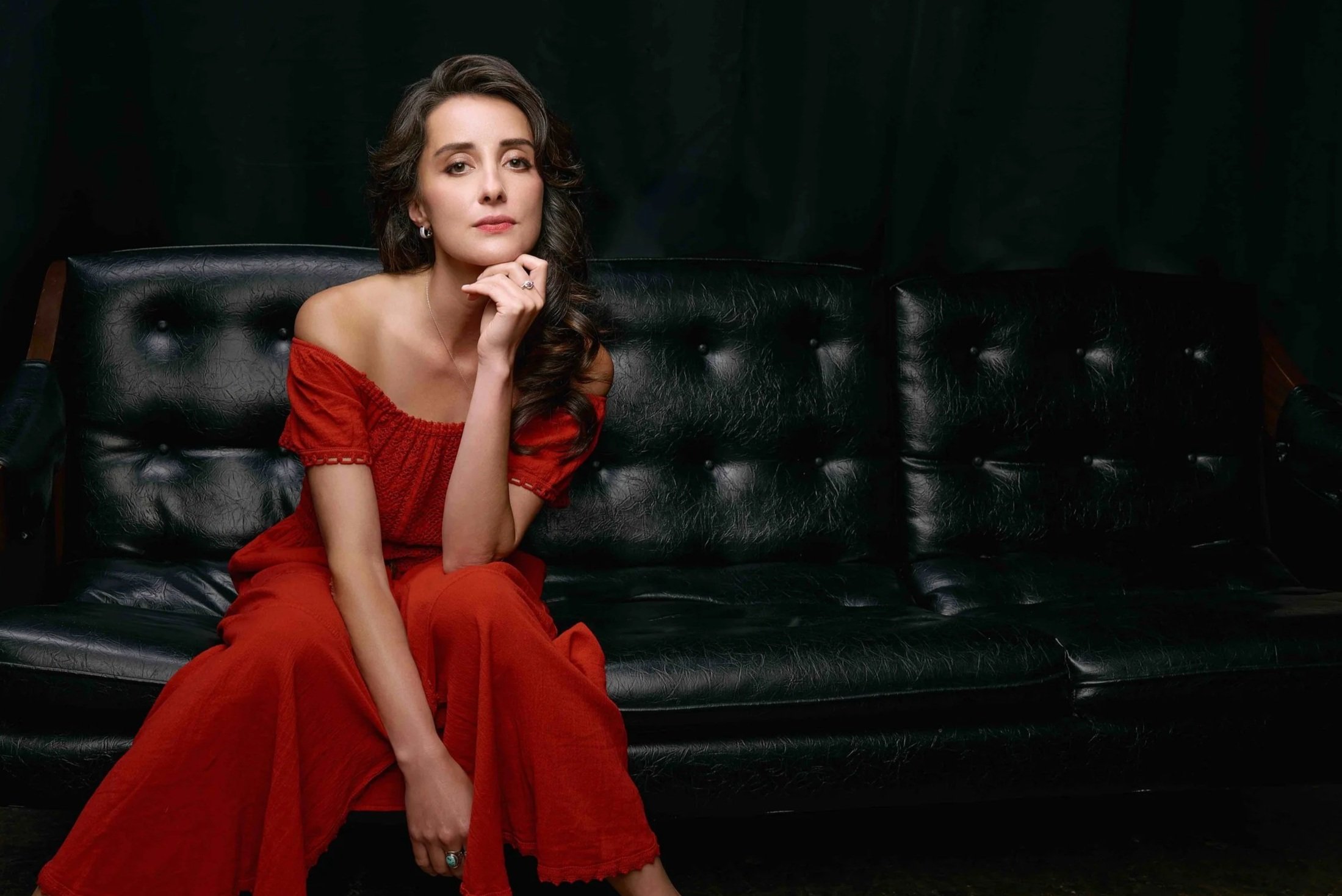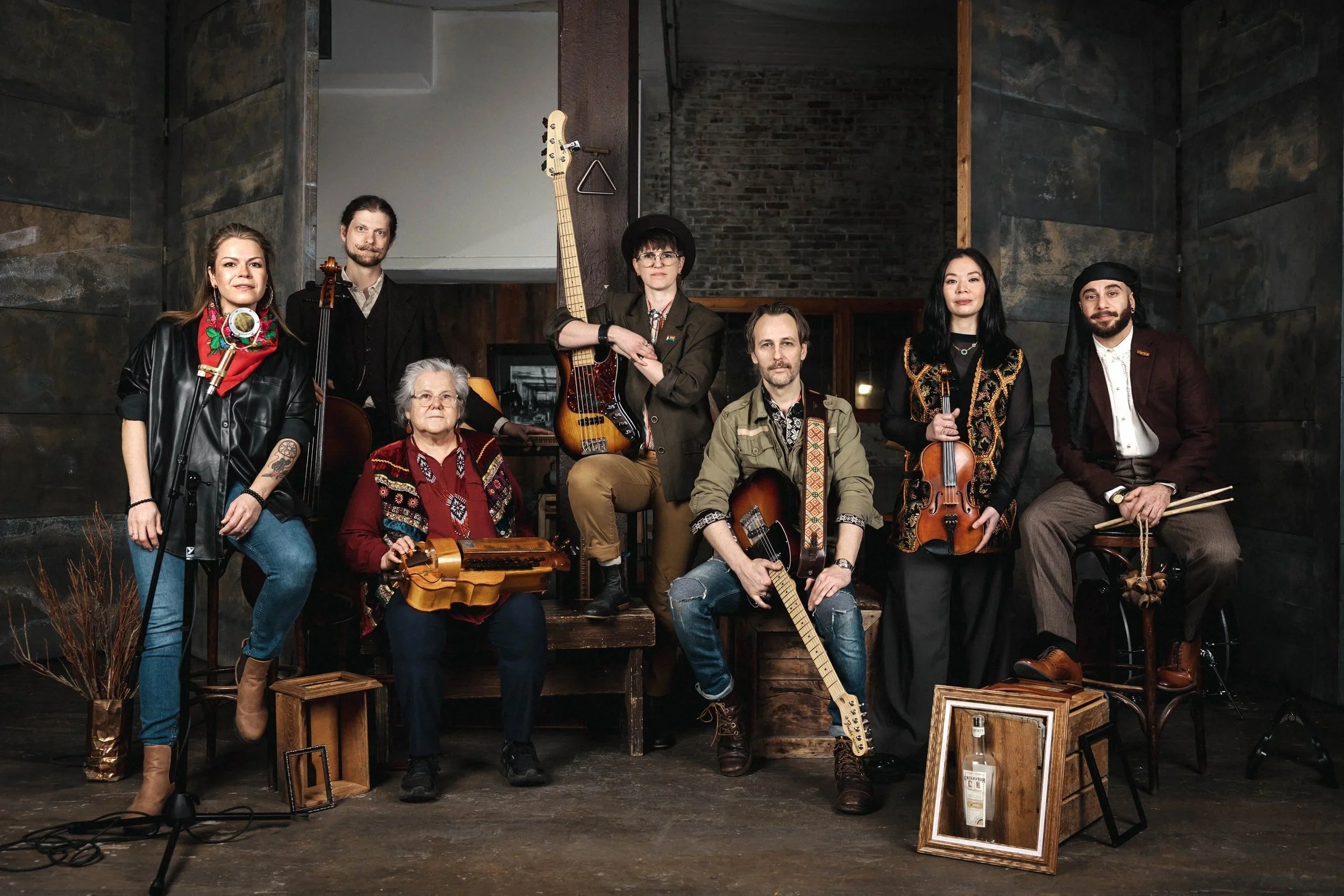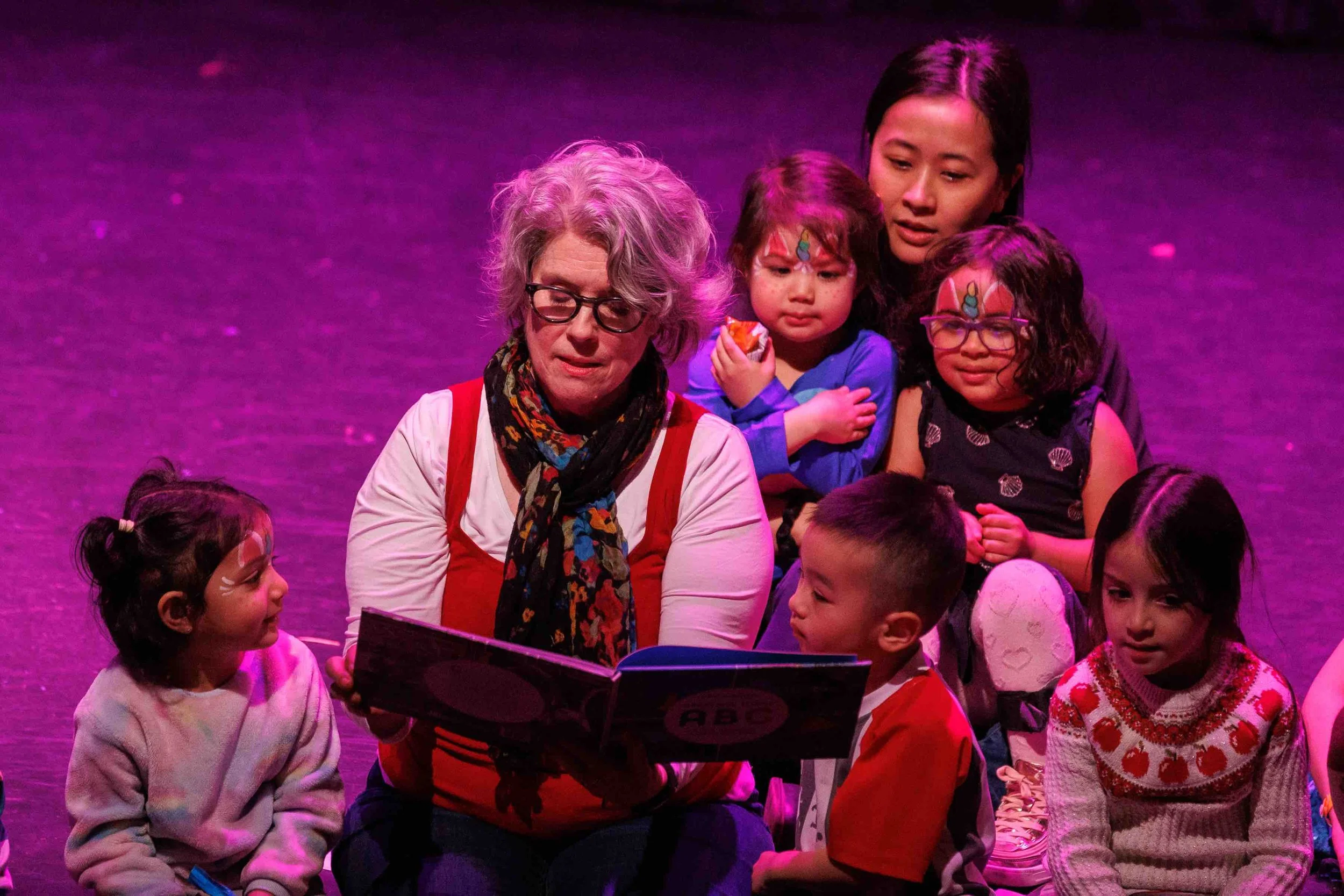Theatre review: Michelle Thrush channels her Inner Elder with imaginative storytelling
At the Firehall Arts Centre, Cree theatre artist journeys through her childhood memories, incorporating cheeky crowd work
Michelle Thrush in Inner Elder. Photo by Ben Laird
Firehall Arts Centre presents Inner Elder to May 31
THINK OF YOUR wisest, funniest friend. The kind who’s been through some things and can tell you about them with a sense of humour that catches you off guard, that can make you laugh at something truly traumatic or outrageous while slipping in a life lesson or two. It’s a gift to have that person in your life—and that’s how it feels to spend an hour with Michelle Thrush in Inner Elder.
The thing about those friends is that they’re storytellers, first and foremost. Thrush is no exception. Long before Inner Elder, before the awards and the recognition, her imagination allowed her to make sense of the world, helping her get through difficult times. It’s the same storytelling she shares with us, full of humour, clarity, and care in this deeply personal play that traces her life from childhood to grandmotherhood.
The one-woman show begins with Thrush walking onstage with a suitcase. She tells us that as a child, she used to carry one around hoping to get beamed up by aliens. It makes sense; she was trying to escape a chaotic home life, raised by two alcoholic parents and shaped by the weight of intergenerational trauma. She grew up in a time when being Cree meant being erased in the stories she turned to for comfort. TV shows like Little House on the Prairie didn’t offer much beyond “white women in bad wigs” playing flat stereotypes.
What really sets Inner Elder apart is Thrush’s voice—not just the sound of it and how effortlessly she shifts it to certain times or certain people in her past, but the way it holds so much memory without being weighed down by it. Like when she recalls not seeing her mother for two years as a toddler, then adds, offhand, “It was probably for the best. I couldn’t have raised two alcoholics.” Or when she says she never really lacked a female presence growing up, since her dad always had plenty of ladies around. It’s unsparing, but it’s also lighthearted.
Her openness never feels like it’s just for the audience. It’s clear she’s honed it over years of storytelling, and throughout this show it’s also clear that it’s rooted in family, culture, and spirituality. She talks about her parents with love and with genuine gratitude for what they gave her, even amid the chaos. In that runaway-ready suitcase she always kept one thing close: the moccasins her kookum—her grandmother—gave her. Her kookum, and her inheritance, is the thread that runs through the entire show.
That thread is especially evident when Thrush pulls a scarf from the suitcase and ties it under her chin, her hair now grey after being dusted in flour, and embodies a character she created more than 30 years ago called Kookum Martha. What follows is a riotous final section full of cheeky crowd work and theatrical clowning. It doesn’t feel like a sharp turn, but something that’s been building all along.
The spunky grandmother’s presence is always there, even before she takes the stage, woven into the the storytelling and soundscape. Composer Sandy Scofield and sound designer JP Lord bring in the voices of ancestors that seem to cheer Thrush on, anchoring her in something larger than herself. The set design features ropes strung across the black-box space, held down by stones. It evokes the trees that Thrush mentions she used to turn to for comfort. Like the show itself, it makes something big out of very little, asking the audience to meet it halfway with imagination.
What a weight Thrush’s stories (and others like hers, not least of which her grandmother’s) carry, and the intentional lightness with which she tells them is equally a gift. Thrush doesn’t take herself too seriously—life already had that covered. What she made of hers is something deeply resilient, funny, and honest. ![]()


